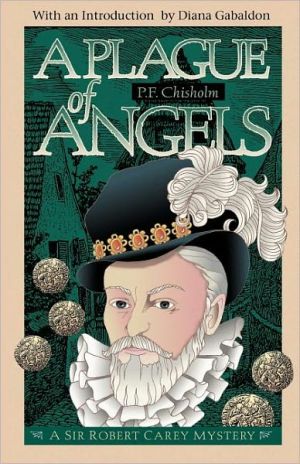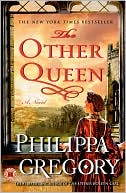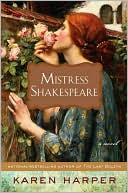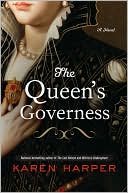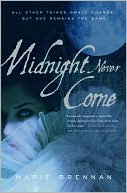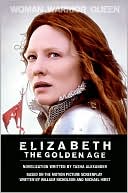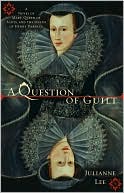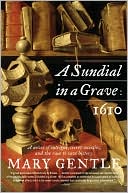A Plague of Angels
In 1592, dashing courtier Sir Robert Carey took up his northern post as Warden of the West March in order to escape the complications of creditors and court life. Trouble, however, dogs his heels wherever he goes. And where he goes in autumn, after the summer's misadventures in Carlisle, is back to London upon a summons from his father.\ Carey is on difficult terms with his powerful sire, Henry, Lord Hunsdon. Hunsdon, son of Anne Boleyn's elder sister, Mary — and probably of a young King...
Search in google:
In 1592, dashing courtier Sir Robert Carey took up his northern post as Warden of the West March in order to escape the complications of creditors and court life. Trouble, however, dogs his heels wherever he goes. And where he goes in autumn, after the summer’s misadventures in Carlisle, is back to London upon a summons from his father.Carey is on difficult terms with his powerful sire, Henry, Lord Hunsdon. Hunsdon, son of Anne Boleyn’s elder sister, Mary—and probably of a young King Henry VIII—swings a lot of weight as “cousin” to Queen Elizabeth. But Hunsdon needs his ingenious younger son, Carey to sort out the difficulties his elder son has got himself into as an innocent party in a plot to discredit the family. Accompanied by the shrewd Sergeant George Dodd, who’s like a fish out of water as he copes with the strange Londoners, Carey tackles Catholics, treachery, and such persons known to history and students of literature as George Greene and Christopher Marlowe who are working as spies and double agents. Most arresting is a portrait of a love-sick, snivelling hanger-on named Will Shakespeare....Publishers WeeklyIn this fourth mystery featuring Sir Robert Carey (after A Surfeit of Guns), strong writing and a wealth of detail about Elizabethan London cannot make up for a painfully slow plot. The book opens with Carey and his sidekick, Sergeant Dodd, on the road to London, a clever and lively scene that promises much more action than what actually follows. Carey, based on a historical figure of the same name, has been called to the city by his father, Lord Chamberlain Hunsdon, half-brother to Queen Elizabeth, to search for his missing brother Edmund. It seems Edmund, never the most sensible of men, has gotten himself mixed up in false alchemy and counterfeiting, a crime that is considered treason. As Carey and Dodd investigate the scheme that drew in Edmund, they discover that Thomas Heneage, the greedy and cruel vice chamberlain, is almost certainly involved. Facts, however, are as elusive as Edmund continues to be. Alternately helped and hindered by the playwrights Christopher Marlowe and William Shakespeare, and merely frustrated by the poet Robert Greene, Carey and Dodd dart about the streets of London, visiting bars and churches, literally avoiding the plague as well as the wiles of the lovely Mistress Bassano. Traitors and allies are finally sorted out in the Fleet, a debtor's prison in London that Chisholm (the pseudonym of historical novelist Patricia Finney) portrays in all its sordid misery. (Nov. 30) Copyright 2000 Cahners Business Information.
A Plague of Angels\ A Sir Robert Carey Mystery \ \ By P. F. Chisholm \ Poisoned Pen Press\ Copyright © 1998 P. F. Chisholm\ All right reserved.\ ISBN: 978-1-890208-43-1 \ \ \ Chapter One\ A Plague of Angels \ Wednesday, 30th August 1592, late afternoon\ You could always tell when you were near a town from the bodies hanging on the gibbets by the main road, thought Sergeant Dodd. London was no different from anywhere else they had passed on the interminable way south. As their horses toiled up the long hill from Golders Farm, Dodd could just glimpse a robber's corpse dangling from a big elm tree, up on the brow. Of course Sir Robert Carey had told him how close they were to London when they turned off the Great North Road and passed through the village of Hendon, but they had been delayed by Carey's horse throwing a shoe. The afternoon crowds of people were gone now so that the dusty rutted road was quite empty. It could have been anywhere.\ A bit of knowledge gleaned from Carey's manservant floated to the front of his mind.\ 'Ay,' he said with interest, and turned in the saddle to speak to Barnabus himself who trailed lumpenly along behind them on a sulky looking horse. 'Would that be Tyburn Tree up ahead there?'\ Barnabus was frowning with concentration as he tried to get his mount to move faster up the hill.\ 'Nah, mate,' he puffed, kicking viciously at the horse's flanks. 'Tyburn's off to the west, where the Edgeware Road meets the Oxford Road, and it's a lot fancier than that. That's only the Hampstead Hanging Elm.'\ The road was curving round into a deep cutting with scrubby heathland trees growing on the banks. Ahead, the Courtier's ugly and obstinate replacement horse was balking at something again, probably the smell of rot from the corpse. Carey had glanced without interest at the Elm with its judicial fruit. The horse neighed, tossed his head and skittered sideways.\ 'God damn it,' Carey snarled to the horse. 'You flyblown lump of dogsmeat, get over!' He brought his whip down on the animal's flank and the horse crow-hopped and tried to turn to run back down the hill to its home in Golders Green.\ Dodd wasn't liking the look of the place either. You couldn't see past the curve of the road and those high banks on both sides were perfect siting for an ambush.\ He tried to urge his own horse up to a canter to bring him level with Carey, but the mare had her head up too, and her nostrils flared. Forelegs straight and the hairs of her mane up, she refused to pick up the pace. Dodd frowned.\ 'Whit's ahead of us, sir?' he called to Carey whose nag was slowly turning round in circles and shaking his head.\ 'The Cut, then Hampstead horse pond,' said the Courtier and whacked the animal again. 'Will you get on, blast you ...' he roared at it.\ Drawing his sword, Dodd slid from the saddle, took the mare's bridle and led her forward at a run, then dodged behind and hit her on the rump with the flat of the sword. The mare reared and bolted past the Courtier and young Simon Barnet on his pony.\ As she galloped up the road through the Cut, whinnying and shaking her head, Dodd heard the unmistakeable whip-chunk! of a crossbow being fired.\ 'Och,' he said to himself as he instantly changed direction and sprinted softly up the narrow path he had spotted on the right hand side of the Cut. 'Ah might have guessed.'\ The bank reared higher on the right of the road, soft sandy earth held together by tree roots and bushes. Just below him, overlooking the narrowest part, he saw a man hunched in hiding, a bolt ready in his crossbow as he squinted down the sight ready for them to pass by.\ Dodd had been storing up an awful lot of rage on the journey south from Carlisle. He gave an inarticulate roar at the sight, hopped like a goat down the high crumbling earthbank and cut down on the man with his sword.\ The footpad had heard something coming, turned just in time to see his death, dropped the crossbow and reflexively put up his hands to defend himself. He took Dodd's swordblade straight down through his armbone and the middle of his face. Dodd slashed sideways to finish the job, then turned at another man who was lungeing out of a bramble bush waving the biggest sword Dodd had ever seen in his life, a great long monster of a thing that the robber was wielding two-handed, his face purple with effort.\ Somewhere behind him, Dodd heard one of Carey's dags fire and an incoherent screaming follow it. As he dodged the whirling blade in front of him, a particle of thought noted that for the first time in his memory, Carey had finally managed to shoot somebody with his fancy weapon.\ Balancing in a crouch, Dodd watched how the robber handled his stupid great sword, ducked again and waited for the instant when the momentum of it was whirling it round the back of the robber's head. That was when Dodd jumped inside the man's guard, slashed once with his sword and kicked as hard as he could at the man's balls.\ The soft earth crumbled under him, he missed his target as he toppled and slipped on his bum down the bank. The robber danced after him, hefted up the long blade to bring it down on Dodd's head; the blade arced through the sky and Dodd rolled and slithered frantically, caught a rowan trunk to stop himself pitching eight feet down, and then saw the man grunt, stand still for a moment with his mouth wide open. The double-handed sword thudded to the ground and its wielder pitched headfirst down the bank and into the road.\ Barnabus stood behind him, puffing for breath and dusting off his hands. Dodd nodded his thanks, clambered back up to the tiny narrow path and ran on to find the rest of the bastards, his blood properly up, just itching to find someone else to kill.\ He saw the flash of legs and then glimpsed three more men off across the bare hill, running as fast as they could past the Hanging Elm. He sprinted after them, roaring 'A Tynedale, A Tynedale, Out! Out!' and the cowardly southron pigs only ran faster, splitting up as they dodged down the other side of the hill through the brambles and bushes.\ Years spent on the Border not getting himself killed won through Dodd's rage and he stopped. They might have kin within hailing range, there might be men and horses lying in wait behind one of the hedges, hiding in a double ambush to catch them when they thought they'd won the fight. No. He was a Dodd from Upper Tynedale and he'd pulled that trick too often himself in the past to be fooled by it.\ He caught his breath and wiped his swordblade with some of the tussocky grass next to the Elm, where the sandy soil was more fertile, glanced up at the corpse in its soiled suit of brown wool with black velvet trimmings. A bit prosperous-looking for a thief; must have been a murderer. The smell wasn't bad at all, though the face was a terrible mess.\ Horsehooves beat the earth behind him, and Dodd whisked round into a crouch again, sword at the ready. It was only the Courtier though, laughing fit to burst his ribs, dag in his left hand and his sword in his right.\ 'By God, Sergeant,' he said. 'That was a bloody good piece of work.'\ Dodd tried hard not to look pleased. 'Ay,' he said. 'They've run though.'\ 'Of course they have. No soft southern footpad is a match for a Tynedaler and never will be.'\ As this was undoubtedly true, Dodd nodded his head. 'How long afore they fetch their kin?' he asked, squinting around himself. Apart from the Elm, there were no proper trees, though a multiplicity of hedges split the fields below. Not much cover up here, he thought, plenty down there, I don't like it.\ Carey was laughing again, putting his still-wound second dag back into its case on the horse's withers, and twirling his sword around his gloved fingers in an absurd swordmaster's flourish.\ 'They won't,' he said with the unwarranted certainty that always enraged Dodd. 'This is Hampstead Heath, not the Bewcastle Waste. Every man jack of them will have to change his breeches now they've lost three of their friends, including the big ugly bastard that almost fell on Simon, who I think was their leader.'\ 'Ye killed one, then, sir?' Dodd said as he followed Carey down the slightly better path that led back to the road on the southern side of the Cut.\ 'Shot one, slashed another.'\ 'Nae trouble wi' yer hands now?'\ Carey grinned with satisfaction and flexed the fingers of his left hand in the embroidered kid gloves he was wearing. 'No, my grip's as good as it ever was,' he said. 'The kick didn't even hurt.'\ Dodd nodded once, unwilling to be as delighted with Carey as Carey was with himself.\ 'I swapped a couple of blows with somebody who had a polearm, might have got him with a slash, and then you killed the big one and the lot of them ran like rabbits.'\ 'Nay sir, that werenae me, it were Barnabus,' Dodd said dolefully, annoyed with himself for not doing better. 'Got him in the back with a throwing knife. I killed anither man with a crossbow.'\ Carey laughed again and sheathed his sword. 'I've never regretted the day I hired Barnabus,' he said untruthfully. 'Even though I was drunk at the time. Come on, let's make sure he doesn't strip all the corpses.'\ Dodd glowered at the thought of being bilked out of his rightful spoils and ran back through the Cut to find Barnabus bending over the man Carey had evidently shot, since his chest was a mashed mess of bone and blood. He was still flopping feebly and Barnabus appeared to be trying to act as a surgeon on him.\ 'Barnabus, really,' admonished Carey from his horse, which was spinning and sidling again. 'Wait until the poor bugger's dead.'\ Barnabus looked furtive. 'Well, sir, I was ... ah ... going to put him out of his misery, so to speak.'\ 'Ay,' said Dodd, coming close and looking down. 'Were ye now? What are they, then?' He pointed at the round bright gold coins scattered about the dying man, some of them embedded in the ruined flesh of his chest.\ 'Buttercups?'\ Barnabus had the grace to look embarrassed. 'Just wondering,' he muttered.\ Even the sniff of gold had the Courtier off his horse, tying it to a bush and coming over to look.\ 'Hm,' he said. 'That's peculiar.'\ Dodd was gathering up the coins on the ground, though he couldn't quite bring himself to start plucking coins out of the man's body. Barnabus wasn't so fussy.\ 'What's a scrawny Hampstead footpad doing with a purseful of gold?' Carey asked. 'And why did they try it on with us if they already had money?'\ Dodd shrugged and went to look at the big bruiser that Barnabus had killed. Somebody else had got there first though, and he scowled at Barnabus who coughed and brought out the purse he had taken.\ Simon came trotting down from the bank looking disappointed. 'Nothing up there, Uncle Barney,' he said. 'Sorry.'\ Pointedly, Carey held out his hand for the spoils which Barnabus handed over. Dodd was very reluctant to give up a purse full of money, even if it had blood and chips of bone mixed in, but wasn't quite annoyed enough with the Courtier to hold onto it.\ Carey hefted the purses and frowned. 'What wealthy little footpads,' he said, and bent over the man he had shot, who was finally still. Staring eyes told him he'd get no information.\ 'Hm,' said Carey again, putting the purses into one of his saddle bags. 'Come on, let's get the horses watered and try and make it into London before nightfall.'\ * * *\ As expected, Dodd's nag was at the horsepond slurping up greenish water and swishing at flies with her tail. She made a great drama about shying when she saw him and trotting further round the pool. Dodd pretended he wasn't interested in her, wandered up to the trampled banks of the pond, looked everywhere but at the horse and then when she put her wary head down again, nipped her bridle.\ 'Got ye,' he whispered to her and she snorted resignedly.\ Carey's mount was still pulling on the reins and sidling stupidly until he caught the smell of water and then he lunged for it. Carey tied him to one of the posts and disappeared into a bramble bush a little way off. Simon came up from the Cut with Barnabus, leading the other two horses. They had no packponies and were riding strange southern horses because Carey had been in a hurry and they had been riding post. They were due to change mounts again at the Holly Tree in Hampstead, and Dodd, for one, couldn't wait to be rid of the latest batch of useless knacker's rejects. Also, he was thirsty, but he would have to be a great deal worse off to consider the stuff in the horsepond. What he wanted was a quart of ale, Bessie's for preference, bread, cheese, a meat pie, pickled onions ... Dodd sighed. Maybe the Holly Tree would have some food. Maybe Carey would let them stop for half an hour to drink.\ Maybe he wouldn't. Dodd wasn't very hopeful. Out of sheer habit, he stared out across the horsepond at the countryside around them and at the thatched roofs of the village which began a little way down the other side of the hill. His horse had finished and was looking at him expectantly, but he didn't have a feedbag hidden anywhere on him, so he tied her to the hitching post near the pond. Then he wandered to the other side of the hilltop, to see if he could spy London town yet, even though the milestone had said they were five miles away still.\ His mouth fell open. It was a fine lookout spot, that hill, good siting for a pele tower, not that the soft southrons had thought of building one. They had a pathetic beacon on a raised bracket, that must have been put up in the Armada year from the rust on it, but there was no wood around to light it with. You could see for miles when it was clear, which it was, a pale golden evening with not a hint of autumn.\ And if you looked southwards, there it lay, a baleful brackish sea of houses, the foremost city in England. The craggy flotsam of church steeples poked up among the cluttered roofs, with smoke dirtying the sky above even on a warm day. Dodd had never seen such a thing. The day before he had been impressed with York, but this ... A city that had burst its walls in all directions with so many people that came and stayed, as if the city ate them and got fatter each time. Dodd narrowed his eyes and pursed his lips. London might impress him, but eat him it would not.\ 'Makes yer heart sing, don't it?' said a guttural voice beside him. Barnabus Cooke was standing there, squinting in the south-westering light of the sun. Either the light was stronger than Dodd thought, or the ferret-faced little man had tears in his eyes. 'Seems a hundred years gone since I left,' he sighed.\ 'Hmphm,' said Dodd noncommitally.\ Barnabus heard his lack of enthusiasm and waved an expressive arm. 'That, Sergeant Dodd, is the greatest city in Christendom. Everything any sane man could ever want you can get right there, no trouble, money to be made, never any reason to be bored.'\ 'Ay, and the streets are all paved wi' gold,' said Dodd straight-faced, 'so I've heard tell.'\ 'No, they ain't,' piped up Simon. 'Don't you listen to 'em, Sergeant. Me and my friend Tom, we dug down for two days solid, looking for gold paving stones and we never found nuffing except more paving stones.'\ Dodd nodded at Simon. At some time on the long weary journey, a mystery had happened to the lad's speech again. From sounding quite Christian really, at least as comprehensible as the Carlisle stable lads, Simon had turned back into the guttural creature with hiccups for 't's that he had been when he first came north. God save me, Dodd thought, feeling for the little lump of his wife's amulet under his shirt, alien men with alien notions and words like cobblestones.\ 'Nay lad,' he said gravely to Simon. 'I never thought it were, or why are the Grahams no' laying siege to it.'\ 'Figures of speech, Sergeant,' said Barnabus patronisingly. 'Only true in a manner of speaking. Like what you get at the playhouse? You ever seen a play?'\ 'I've seen the players that come to Carlisle some years,' said Dodd, who hadn't thought much of them. 'Garish folk, and ay arguing.'\ Barnabus tutted. 'Nah. Plays. At a playhouse. With guns for thunder and the boys tricked out in velvets and satin and trumpets and a jig at the end. Best bit, the jig, I've always thought. Worf waiting for.'\ 'Why?'\ Barnabus grinned knowingly and tapped his bulbous nose. 'You'll see.'\ (Continues...)\ \ \ \ \ Excerpted from A Plague of Angels by P. F. Chisholm Copyright © 1998 by P. F. Chisholm. Excerpted by permission of Poisoned Pen Press. All rights reserved. No part of this excerpt may be reproduced or reprinted without permission in writing from the publisher.\ Excerpts are provided by Dial-A-Book Inc. solely for the personal use of visitors to this web site. \ \
\ Publishers Weekly\ - Publisher's Weekly\ In this fourth mystery featuring Sir Robert Carey (after A Surfeit of Guns), strong writing and a wealth of detail about Elizabethan London cannot make up for a painfully slow plot. The book opens with Carey and his sidekick, Sergeant Dodd, on the road to London, a clever and lively scene that promises much more action than what actually follows. Carey, based on a historical figure of the same name, has been called to the city by his father, Lord Chamberlain Hunsdon, half-brother to Queen Elizabeth, to search for his missing brother Edmund. It seems Edmund, never the most sensible of men, has gotten himself mixed up in false alchemy and counterfeiting, a crime that is considered treason. As Carey and Dodd investigate the scheme that drew in Edmund, they discover that Thomas Heneage, the greedy and cruel vice chamberlain, is almost certainly involved. Facts, however, are as elusive as Edmund continues to be. Alternately helped and hindered by the playwrights Christopher Marlowe and William Shakespeare, and merely frustrated by the poet Robert Greene, Carey and Dodd dart about the streets of London, visiting bars and churches, literally avoiding the plague as well as the wiles of the lovely Mistress Bassano. Traitors and allies are finally sorted out in the Fleet, a debtor's prison in London that Chisholm (the pseudonym of historical novelist Patricia Finney) portrays in all its sordid misery. (Nov. 30) Copyright 2000 Cahners Business Information.\ \
